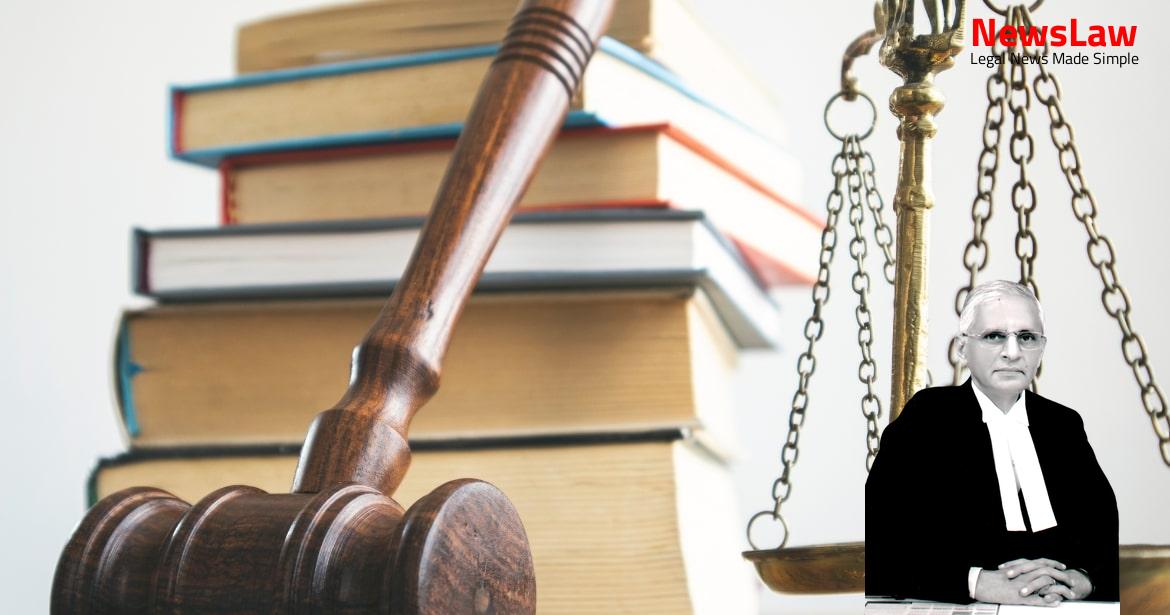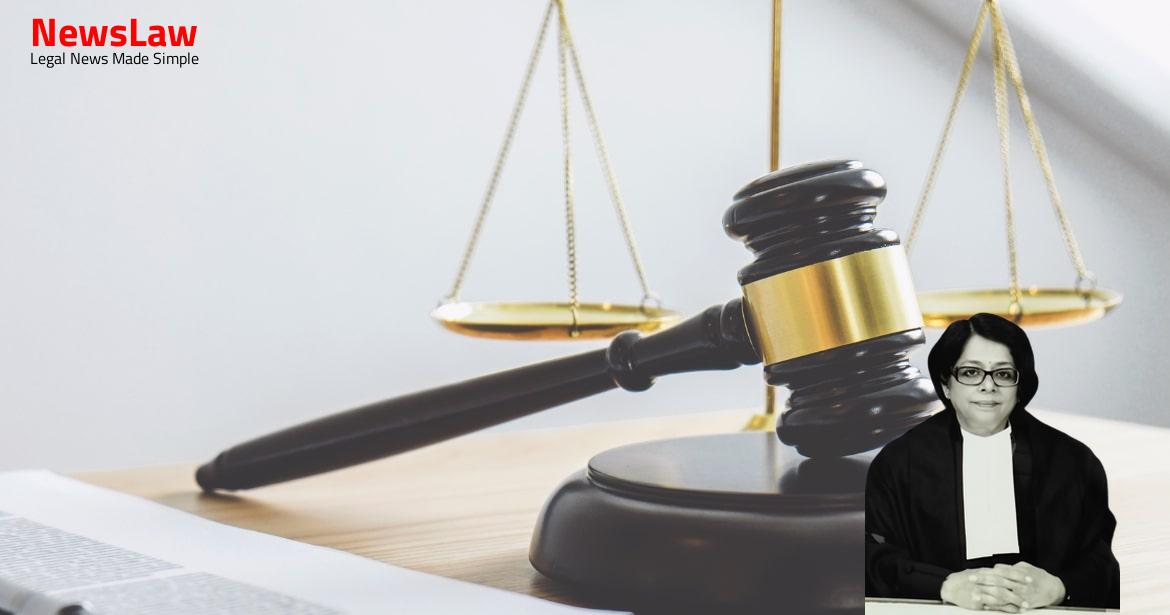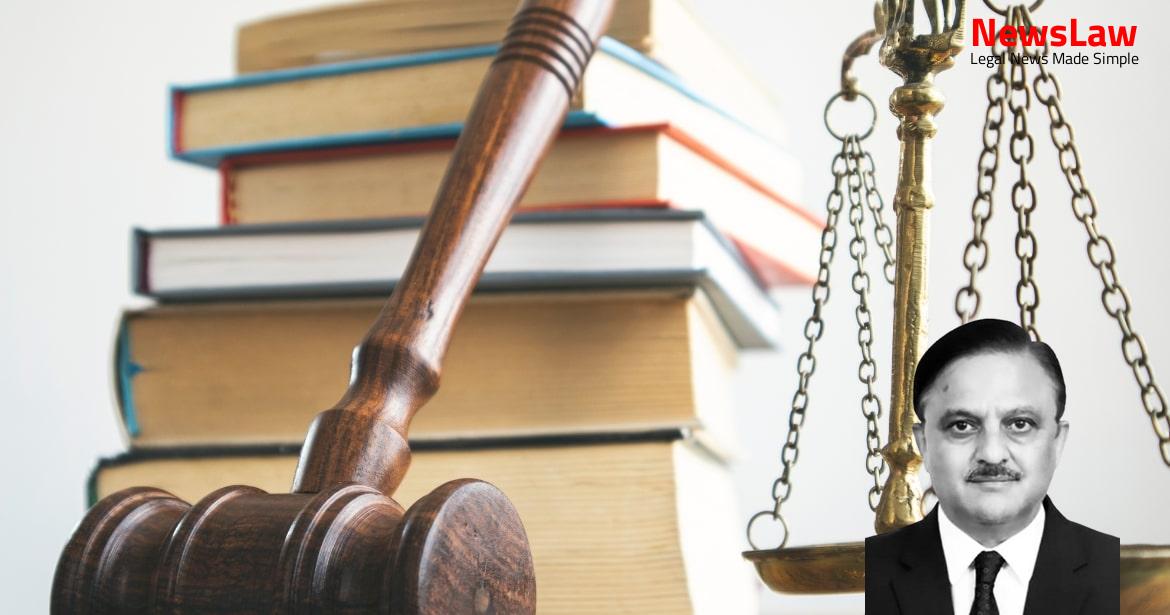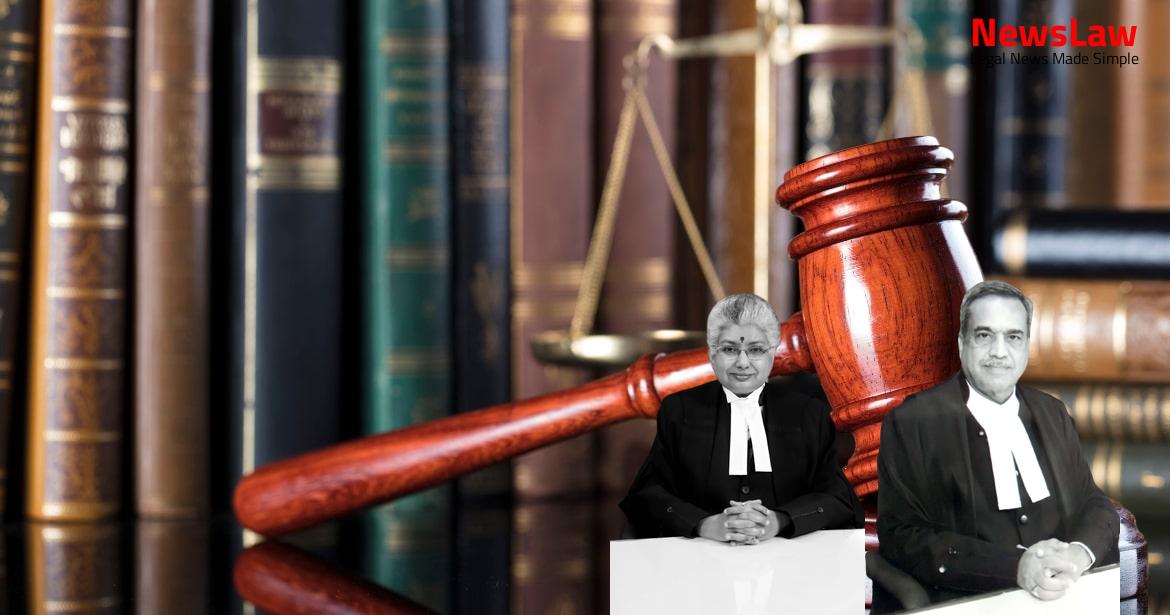Explore a comprehensive legal analysis focused on the jurisdiction of the Commandant and the obligations of the SSFC in disciplinary proceedings. The court scrutinizes the nuances of ordering additional evidence and the necessity of providing reasons to support findings of guilt. This summary sheds light on the complexities of legal procedures in cases of misconduct, emphasizing the importance of upholding fairness and clarity in legal proceedings.
Facts
- The Union of India and officials of the Border Security Force appealed against a judgment of the Calcutta High Court which reinstated the respondent to his initial position in the BSF
- The incident in question took place on 17 April 2006 during Naka duty between 02:00 to 06:00 hours
- The respondent, a Head Constable in the BSF, was found guilty by the SSFC and demoted to the rank of Constable as punishment
- A Summary Security Force Court was convened to try the respondent based on the allegations
- The respondent filed a statutory petition under Section 117 of the BSF Act 1968 to challenge the conviction
- The Director-General of the BSF commuted the sentence of reduction to the rank of Constable
- The RoE and additional RoE were provided to the respondent before the trial proceedings
- The appellate authority, the Director-General of BSF, disposed of the statutory petition on 18 October 2006
- The Division Bench of the High Court upheld the judgment of the Single Judge on 18 October 2018.
- The reasons for upholding the judgment included the Commandant lacking jurisdiction to direct the preparation of an additional RoE under Rule 51 of the Border Security Force Rules 1969 and the absence of reasons provided by SSFC or the Appellate Authority for holding the respondent guilty.
- The Commandant’s order for an additional RoE was made on 10 June 2006 and the respondent’s charge was found to be established, resulting in a commuted punishment of reduction to the rank of Constable.
- The High Court’s Single Judge set aside the punishment order on 7 May 2009 citing insufficiency in the original RoE to prove the charge and ruling the Commandant’s order for additional RoE as beyond jurisdiction.
- The case was not about insufficient evidence but rather about clarificatory evidence according to the BSF Rules 1969.
- A minor inaccuracy regarding the incident date was noted in the complaint.
- The Division Bench of the High Court emphasized the requirement for SSFC to provide reasons supporting its conclusion of guilt and emphasized that reasons must be furnished for awarding the sentence upon a finding of guilt as per Rule 151.
Also Read: Electoral Malpractices in Mayor Election
Arguments
- Rule 6 of the BSF Rules 1969 applies only to matters not specifically provided in the Rules.
- The decision in Som Datt Datta case was followed by the Constitution Bench
- The Constitution Bench in the S N Mukherjee case concluded that none of the provisions of the Army Act confer a duty to furnish reasons
- Justice S C Agrawal analyzed the provisions of the Army Act 1950 in terms of natural justice principles
- The Court held that there was no requirement to furnish reasons for the Chief of Army Staff or the Union Government when confirming court-martial proceedings
Also Read: Balancing Power and Transparency: Electoral Bonds Struck Down, Disclosure Mandated
Analysis
- The Court delves into the analysis of the jurisdiction of the Commandant to direct the preparation of an additional Report of Evidence (RoE) and the obligation of the SSFC to record reasons under Rule 159 of the BSF Rules 1969.
- The Commandant had the implicit power to order an additional RoE for clarification purposes, as per Rules 48 and 51, even before the 2011 amendment.
- The High Court’s decision was deemed erroneous as the Commandant did not exceed his jurisdiction by seeking clarification on the incident date through an additional RoE.
- The amendment to Rule 51 in 2011, introducing the power to order further evidence, was considered clarificatory and retrospective in nature.
- The Court emphasizes the importance of upholding the spirit of laws against sexual harassment, ensuring fair proceedings and protection for individuals reporting misconduct.
- The analysis also highlights a trend of invalidating proceedings on technical grounds when dealing with sexual misconduct cases.
- The power of the Commandant to order an additional RoE was viewed as incidental to the enforcement of Rules 48 and 51, ensuring clarity and fairness in disciplinary proceedings.
- (i) The Commandant did not have the power to order the preparation of an additional RoE without specific conferment of power at the material time.
- (ii) The power to record further evidence is only conferred on a superior authority convening a Court under Rule 59.
- (iii) Only the authority convening a court can exercise powers provided in Rule 59, including returning the case for recording further evidence if the existing evidence is insufficient.
- (iv) The Commandant’s order resulted in the same witnesses being examined twice, which was done without legal authority.
- (v) The SSFC did not provide reasons to support the conclusion that the charge against the respondent was proven.
- (vi) The RoE initially prepared was insufficient to prove the charge, leading to the additional RoE being ordered for the same witnesses.
- (vii) The decision of the SSFC was made based on the additional RoE prepared under the Commandant’s order, which was deemed to be without jurisdiction.
- The requirement of furnishing reasons does not apply in every case concerning a finding by a statutory tribunal.
- Under the BSF Act 1968, there are three kinds of courts: General Security Force Courts, Petty Security Force Courts, and Summary Security Force Courts.
- An amending act or a declaratory act does not need to explicitly mention its declaratory nature to be operative retrospectively.
- The High Court’s conclusion that the Commandant did not have the authority to order recording of additional evidence was deemed perverse.
- Provisions of Rule 149 and Section 117(2) do not require the SSFC or the Director-General to give reasons for their decisions.
- Service rules amendments are often clarificatory in nature, with retrospective operation.
- Rule 149 of the BSF Rules 1969 does not mandate the SSFC to record reasons when rendering its findings of guilt on a case referred to it.
- The decision in Dinesh Kumar (supra) relied on the Constitution Bench decisions in S N Mukherjee (supra) and Som Datt Dutta (supra) to conclude that recording reasons is not mandated by Rule 149.
- The Constitution Bench in S N Mukherjee (supra) followed the decision in Som Datt Datta v. Union of India which dealt with the duty of furnishing reasons in a similar context under the Army Act, 1950.
- The High Court’s interpretation of the jurisdiction of the Commandant and the obligation of the SSFC under the BSF Act 1968 and Rules was deemed incorrect.
- The High Court displayed a callous attitude towards the proceedings.
- Courts are urged to interpret service rules and statutory regulations on preventing sexual harassment in a manner that ensures procedural and substantive justice for all parties involved.
Also Read: Recall of Resolution Plan Approval: Legal Analysis
Decision
- The appeal is allowed.
- The impugned judgment and order of the Division Bench of the Calcutta High Court of 18 December 2018 and of the Single Judge of the Calcutta High Court on 7 May 2009 are set aside.
- The appeal is disposed of as mentioned.
- Consequently, the writ petition filed by the respondent is dismissed.
- Pending application(s), if any, shall stand disposed of.
Case Title: UNION OF INDIA Vs. MUDRIKA SINGH (2021 INSC 817)
Case Number: C.A. No.-006859-006859 / 2021



